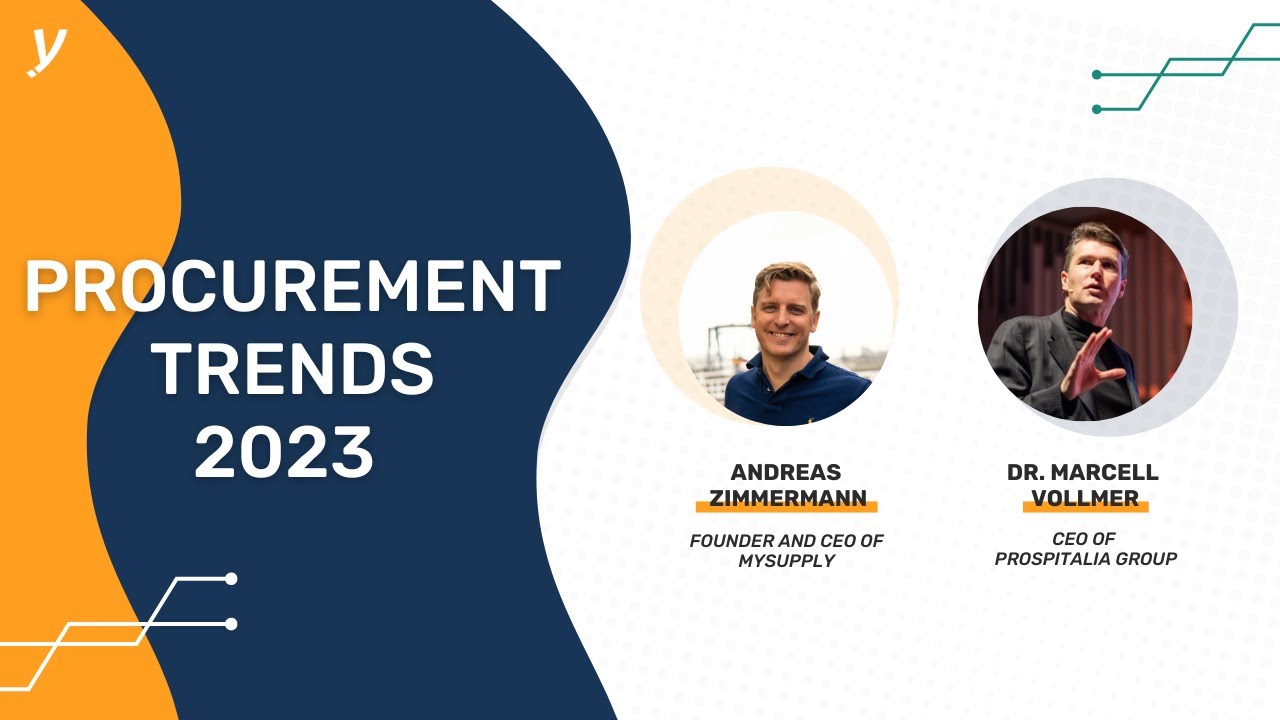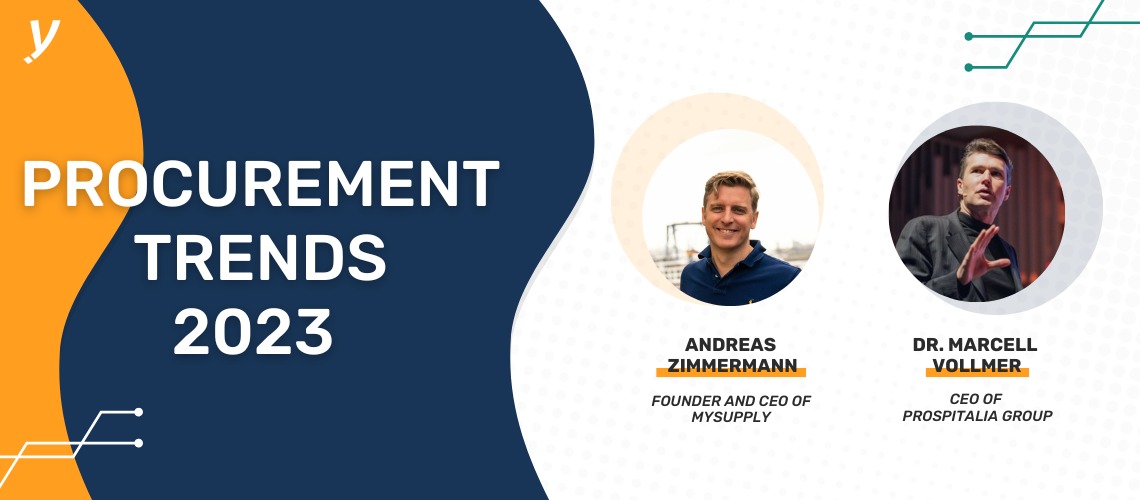As we look ahead to 2023, it is worth reviewing 2022 briefly. 2022 was a challenging year for all of us! Getting back to normal was issue number one for last year, many businesses struggled due to many unexpected events worldwide and planning and risk mitigation were extremely complicated. Will it be the same in 2023? Are we going to get back to normal business-wise? What are the trends that are going to shape the business this year? And what challenges should we be aware of? These were some of the questions we had the pleasure to discuss with the procurement guru Dr. Marcell Vollmer at the beginning of 2023!
Look at the podcast and enjoy the insightful discussion of Dr. Marcell Vollmer and Andreas Zimmermann, Founder & CEO of mysupply.

Mit dem Laden des Videos akzeptieren Sie die Datenschutzerklärung von YouTube.
Mehr erfahren

